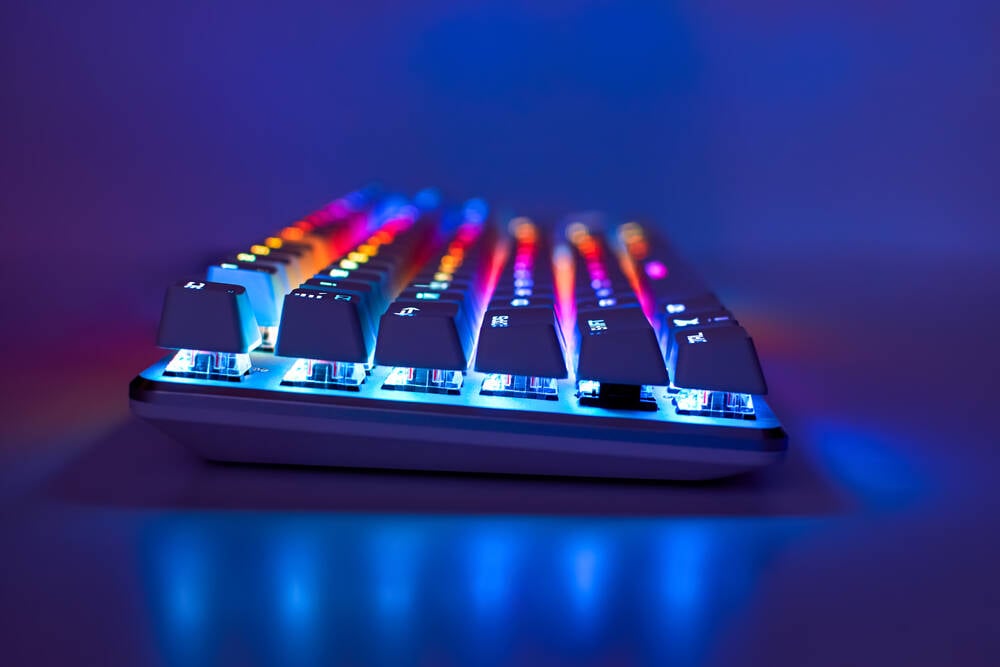Researchers in the UK claim to have translated the sound of laptop keystrokes into their corresponding letters with 95 percent accuracy in some cases.
That 95 percent figure was achieved with nothing but a nearby iPhone. Remote methods are just as dangerous: over Zoom, the accuracy of recorded keystrokes only dropped to 93 percent, while Skype calls were still 91.7 percent accurate.
In other words, this is a side channel attack with considerable accuracy, minimal technical requirements, and a ubiquitous data exfiltration point: Microphones, which are everywhere from our laptops, to our wrists, to the very rooms we work in.
Quite scary considering the accuracy and how many open mics everyone is surrounded by without even realizing it. Not to mention if any content creator types their password while live streaming or recording they could get their accounts stolen.
One more reason to switch to a password manager, even though they could still find out the master password…
Probably still have some safety if you’re using two-factor, or have a master key in addition to a password (e.g. 1Password).
Only if you have to type it in to unlock your vault. Now, bear with me.
Bitwarden (maybe others) lets you set a PIN to unlock your vault. Normally, you would think this is a less secure setup, easier to crack with the method outlined in this article. Except with Bitwarden you have to set up the pin in every browser extension and every app install.
Meaning, unless they have access to your device, the PIN to unlock one instance of Bitwarden could be different from the PIN for another. They also don’t have to be strictly 4-digit PINs, either. I highly recommend password managers, but for my money, Bitwarden has all my love.
Disclaimer: I am on no way affiliated with Bitwarden. But I could be if they paid me!
but then I have to remember the PIN for each one of my devices. there should be some kind of app for storing those.
Do what users at most businesses do, write it on a sticky note and put it on the underside of your keyboard!
Stick around for more tech tips with a real life sysadmin!
I’d be curious how well this approach translates to multi-lingual keyboard layouts. For english users, perhaps theres another benefit to non-QWERTY layouts (e.g. Colemak or Dvorak) after all? … and two factor authentication should remain helpful I presume. Especially physical key methods with no audible characters typed (e.g. Yubikey, Titan, etc.)
I was thinking the same, but it would be trivial for software to realize that “fnj xlg” maps to “the dog” with Colemak or Dvorak.
I guess my typos are now a security feature!
Some laptops like the Framework laptop have fingerprint sensors
Physical Security keys like NitroKeys or YubiKeys are another option
I don’t see the relevance.
You can use fingerprint or U2F to unlock your password manager and copy the password. That way you don’t have to type it in.
That does nothing for keylogging through this method.
It would have to be combined with a secure (no microphones) area during setup, but it seems like swapped biometric plus token would defeat this attack (password gathering). It would however not defeat generic data collection.
I wonder if different switches, keycap profiles, keyboard material ect affect the accuracy?
I never learned to touch-type, so my typing style is very different from most people though I can type fast enough for work.
My typing style only uses 3 fingers, and both hands type keys in the middle of the keyboard.
I wonder if this has any effect on accuracy?
Edit: Article states touch-typing can reduce accuracy. Wonder if that’s because they type more softly than us tech gorillas who tend to bash on the keys?
I’m a touch typist who can reach 160wpm when I’m really flowing, I would guess the speed makes accuracy harder to distinguish individual keys than you pressing keys with three fingers.
I type an awful lot slower than you, and still it’s faster than I can think. How do you think of what to type fast enough to type at 160wpm?
Not the original person you responded to, but I type 120ish wpm. The trick is to try to tap into the same part of your brain that verbalizes words when you talk, rather than the part that composes stuff when you write.
That speed is usually transcription for me, I’m listening to someone and type what I hear. Actual writing and composing a thought typing speed is closer to 120wpm or so. I learned to type on a typewriter which is much slower, current low profile mech keyboard contributes to faster typing speed too.
This is old news. This article was published on 7 Aug 2023.
This method is far older than that, and it keeps popping up every so often as a “new” attack. First time I read about this method was in the early 2000’s, and I’m pretty sure it been done before that as well.
I first heard about it in the Snowden leaks, but I have no doubt it was discovered earlier.
Isn’t boffin a derogatory term like “nerd”?
What a dogshit headline.
It can be. Being a boffin, I’m not offended. Up to the individual if they choose to be offended.
Still shitty journalism to refer to researchers publishing their research in that way.
It’s The Register - think the Financial Times for IT but in the style of The Sun/any other British tabloid. They do it for the lulz, if you will - don’t get too hung up on the headlines as the content is top quality.
Article also uses the term “eggheads”.
To go from keystroke sounds to actual letters, the eggheads recorded a person typing on a 16-inch 2021 MacBook Pro using a phone placed 17cm away and processed the sounds to get signatures of the keystrokes.
This is the best summary I could come up with:
In other words, this is a side channel attack with considerable accuracy, minimal technical requirements, and a ubiquitous data exfiltration point: Microphones, which are everywhere from our laptops, to our wrists, to the very rooms we work in.
To make matters worse, the trio said in their paper that they’ve achieved what they claim is an accuracy record for acoustic side-channel attacks (ASCA) without relying on a language model.
Luckily in this case it’s not power usage, CPU frequencies, blinking lights or RAM buses leaking data unavoidably, but a good old-fashioned problem occurring between the computer and chair that can actually be mitigated somewhat easily.
The researchers note that skilled users able to rely on touch typing are harder to detect accurately, with single-key recognition dropping from 64 to 40 percent at the higher speeds enabled by the technique.
Working among the clacking of phantom keyboards would surely annoy everyone, which is why the researchers suggest only adding the sounds to Skype and Zoom transmissions after they’ve been recording instead of subjecting employees to real-time noisemakers.
Followup research is now going on into using new sources for recordings, like smart speakers, better keystroke isolation techniques and the addition of a language model to make their acoustic snooping even more effective.
The original article contains 656 words, the summary contains 210 words. Saved 68%. I’m a bot and I’m open source!
Idk how it works with non-NVIDIA GPUs but get Nvidia Broadcast or an equivalent. Its a life saver.
macOS Sonoma has just updated with camera effects/reactions and “voice isolation” which works just like NVIDIA Broadcast/RTX Voice, luckily.
It doesn’t do a very good job of removing my keyboard noise for some reason, and it makes my voice sound noticably worse 😔
Mines perfect, my baby can’t even scream in my mic. It gets caught. I don’t recall messing with settings, and my GPU is a 2080 TI. Idk, hardware maybe? Theres not much to mess with.
This is why I always make sure there are no boffins around before I start typing.
What about Hornblower’s, Bolger’s, Took’s, Sackville’s or Grubb’s?
Removed by mod
Might have to spend some time getting Easy Effects/Noise Torch set up on my systems again just to reduce the vectors again.
There is a good comment on this post on physical mitigation that seems helpful as well: https://www.reddit.com/r/Fedora/comments/uerp9z/comment/i6p0jqa/?utm_source=share&utm_medium=mweb3x&utm_name=mweb3xcss&utm_term=1&utm_content=share_button
Removed by mod








